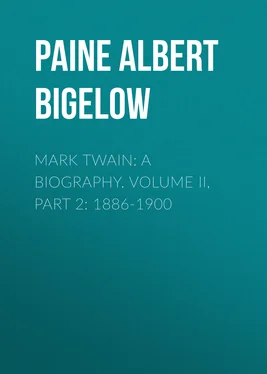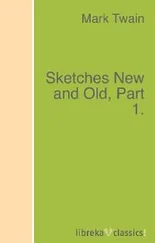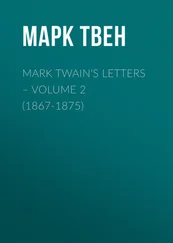Albert Paine - Mark Twain - A Biography. Volume II, Part 2 - 1886-1900
Здесь есть возможность читать онлайн «Albert Paine - Mark Twain - A Biography. Volume II, Part 2 - 1886-1900» — ознакомительный отрывок электронной книги совершенно бесплатно, а после прочтения отрывка купить полную версию. В некоторых случаях можно слушать аудио, скачать через торрент в формате fb2 и присутствует краткое содержание. Жанр: Биографии и Мемуары, foreign_antique, на английском языке. Описание произведения, (предисловие) а так же отзывы посетителей доступны на портале библиотеки ЛибКат.
- Название:Mark Twain: A Biography. Volume II, Part 2: 1886-1900
- Автор:
- Жанр:
- Год:неизвестен
- ISBN:нет данных
- Рейтинг книги:4 / 5. Голосов: 1
-
Избранное:Добавить в избранное
- Отзывы:
-
Ваша оценка:
- 80
- 1
- 2
- 3
- 4
- 5
Mark Twain: A Biography. Volume II, Part 2: 1886-1900: краткое содержание, описание и аннотация
Предлагаем к чтению аннотацию, описание, краткое содержание или предисловие (зависит от того, что написал сам автор книги «Mark Twain: A Biography. Volume II, Part 2: 1886-1900»). Если вы не нашли необходимую информацию о книге — напишите в комментариях, мы постараемся отыскать её.
Mark Twain: A Biography. Volume II, Part 2: 1886-1900 — читать онлайн ознакомительный отрывок
Ниже представлен текст книги, разбитый по страницам. Система сохранения места последней прочитанной страницы, позволяет с удобством читать онлайн бесплатно книгу «Mark Twain: A Biography. Volume II, Part 2: 1886-1900», без необходимости каждый раз заново искать на чём Вы остановились. Поставьте закладку, и сможете в любой момент перейти на страницу, на которой закончили чтение.
Интервал:
Закладка:
Matthews replied that not every one could go to Canada, any more than to Corinth. He said:
"It is not easy for a poor author who may chance to live in Florida or Texas, those noted homes of literature, to go to Canada."
Clemens did not reply again; that is to say, he did not publish his reply. It was a capable bomb which he prepared, well furnished with amusing instance, sarcasm, and ridicule, but he did not use it. Perhaps he was afraid it would destroy his opponent, which would not do. In his heart he loved Matthews. He laid the deadly thing away and maintained a dignified reserve.
Clemens often felt called upon to criticize American institutions, but he was first to come to their defense, especially when the critic was an alien. When Matthew Arnold offered some strictures on America. Clemens covered a good many quires of paper with caustic replies. He even defended American newspapers, which he had himself more than once violently assailed for misreporting him and for other journalistic shortcomings, and he bitterly denounced every shaky British institution, touched upon every weak spot in hereditary rule. He did not print—not then—[An article on the American press, probably the best of those prepared at this time, was used, in part, in The American Claimant, as the paper read before the Mechanics' Club, by "Parker," assistant editor of the 'Democrat'.]—he was writing mainly for relief—without success, however, for he only kindled the fires of his indignation. He was at Quarry Farm and he plunged into his neglected story—A Yankee in King Arthur's Court—and made his astonishing hero the mouthpiece of his doctrines. He worked with an inspiration and energy born of his ferocity. To Whitmore, near the end of the summer, he wrote:
I've got 16 working-days left yet, and in that time I will add another 120,000 words to my book if I have luck.
In his memoranda of this time he says:
There was never a throne which did not represent a crime. There is no throne to-day which does not represent a crime ….
Show me a lord and I will show you a man whom you couldn't tell from a journeyman shoemaker if he were stripped, and who, in all that is worth being, is the shoemaker's inferior; and in the shoemaker I will show you a dull animal, a poor-spirited insect; for there are enough of him to rise and chuck the lords and royalties into the sea where they belong, and he doesn't do it.
But his violence waned, maybe, for he did not finish the Yankee in the sixteen days as planned. He brought the manuscript back to Hartford, but found it hard work there, owing to many interruptions. He went over to Twichell's and asked for a room where he might work in seclusion. They gave him a big upper chamber, but some repairs were going on below. From a letter written to Theodore Crane we gather that it was not altogether quiet.
Friday, October 5, 1888.
DEAR THEO, I am here in Twichell's house at work, with the noise of the children and an army of carpenters to help: Of course they don't help, but neither do they hinder. It's like a boiler factory for racket, and in nailing a wooden ceiling on to the room under me the hammering tickles my feet amazingly sometimes and jars my table a good deal, but I never am conscious of the racket at all, and I move my feet into positions of relief without knowing when I do it. I began here Monday morning, and have done eighty pages since. I was so tired last night that I thought I would lie abed and rest to-day; but I couldn't resist. I mean to try to knock off tomorrow, but it's doubtful if I do. I want to finish the day the machine finishes, and a week ago the closest calculations for that indicated Oct. 22—but experience teaches me that the calculations will miss fire as usual.
The other day the children were projecting a purchase, Livy and I to furnish the money—a dollar and a half. Jean discouraged the idea. She said, "We haven't got any money. Children, if you would think, you would remember the machine isn't done."
It's billiards to-night. I wish you were here.
With love to you both, S. L. C.P. S. I got it all wrong. It wasn't the children, it was Marie.
She wanted a box of blacking for the children's shoes. Jean reproved her and said, "Why, Marie, you mustn't ask for things now.
The machine isn't done."
Neither the Yankee nor the machine was completed that fall, though returns from both were beginning to be badly needed. The financial pinch was not yet severe, but it was noticeable, and it did not relax.
A memorandum of this time tells of an anniversary given to Charles and Susan Warner in their own home. The guests assembled at the Clemens home, the Twichells among them, and slipped across to Warner's, entering through a window. Dinner was then announced to the Warners, who were sitting by their library fire. They came across the hall and opened the dining-room door, to be confronted by a table fully spread and lighted and an array of guests already seated.
CLXVIII
INTRODUCING NYE AND RILEY AND OTHERS
It was the winter (1888-89) that the Bill Nye and James Whitcomb Riley entertainment combination set out on its travels. Mark Twain introduced them to their first Boston audience. Major J. B. Pond was exploiting Nye and Riley, and Clemens went on to Boston especially to hear them. Pond happened upon him in the lobby of the Parker House and insisted that nothing would do but he must introduce them. In his book of memories which he published later Pond wrote:
He replied that he believed I was his mortal enemy, and determined that he should never have an evening's enjoyment in my presence. He consented, however, and conducted his brother-humorist and the Hoosier poet to the platform. Mark's presence was a surprise to the audience, and when they recognized him the demonstration was tremendous. The audience rose in a body, and men and women shouted at the very top of their voices. Handkerchiefs waved, the organist even opened every forte key and pedal in the great organ, and the noise went on unabated for minutes. It took some time for the crowd to get down to listening, but when they did subside, as Mark stepped to the front, the silence was as impressive as the noise had been.
He presented the Nye-Riley pair as the Siamese Twins. "I saw them first," he sand, "a great many years ago, when Mr. Barnum had them, and they were just fresh from Siam. The ligature was their best hold then, but literature became their best hold later, when one of them committed an indiscretion, and they had to cut the old bond to accommodate the sheriff."
He continued this comic fancy, and the audience was in a proper frame of mind, when he had finished, to welcome the "Twins of Genius" who were to entertain them:
Pond says:
It was a carnival of fun in every sense of the word. Bostonians will not have another such treat in this generation.
Pond proposed to Clemens a regular tour with Nye and Riley. He wrote:
I will go partners with you, and I will buy Nye and Riley's time and give an entertainment something like the one we gave in Boston. Let it be announced that you will introduce the "Twins of Genius." Ostensibly a pleasure trip for you. I will take one-third of the profits and you two-thirds. I can tell you it will be the biggest thing that can be brought before the American public.
But Clemens, badly as he was beginning to need the money, put this temptation behind him. His chief diversion these days was in gratuitous appearances. He had made up his mind not to read or lecture again for pay, but he seemed to take a peculiar enjoyment in doing these things as a benefaction. That he was beginning to need the money may have added a zest to the joy of his giving. He did not respond to all invitations; he could have been traveling constantly had he done so. He consulted with Mrs. Clemens and gave himself to the cause that seemed most worthy. In January Col. Richard Malcolm Johnston was billed to give a reading with Thomas Nelson Page in Baltimore. Page's wife fell ill and died, and Colonel Johnston, in extremity, wired Charles Dudley Warner to come in Page's place. Warner, unable to go, handed the invitation to Clemens, who promptly wired that he would come. They read to a packed house, and when the audience was gone and the returns had been counted an equal division of the profits was handed to each of the authors. Clemens pushed his share over to Johnston, saying:
Читать дальшеИнтервал:
Закладка:
Похожие книги на «Mark Twain: A Biography. Volume II, Part 2: 1886-1900»
Представляем Вашему вниманию похожие книги на «Mark Twain: A Biography. Volume II, Part 2: 1886-1900» списком для выбора. Мы отобрали схожую по названию и смыслу литературу в надежде предоставить читателям больше вариантов отыскать новые, интересные, ещё непрочитанные произведения.
Обсуждение, отзывы о книге «Mark Twain: A Biography. Volume II, Part 2: 1886-1900» и просто собственные мнения читателей. Оставьте ваши комментарии, напишите, что Вы думаете о произведении, его смысле или главных героях. Укажите что конкретно понравилось, а что нет, и почему Вы так считаете.












